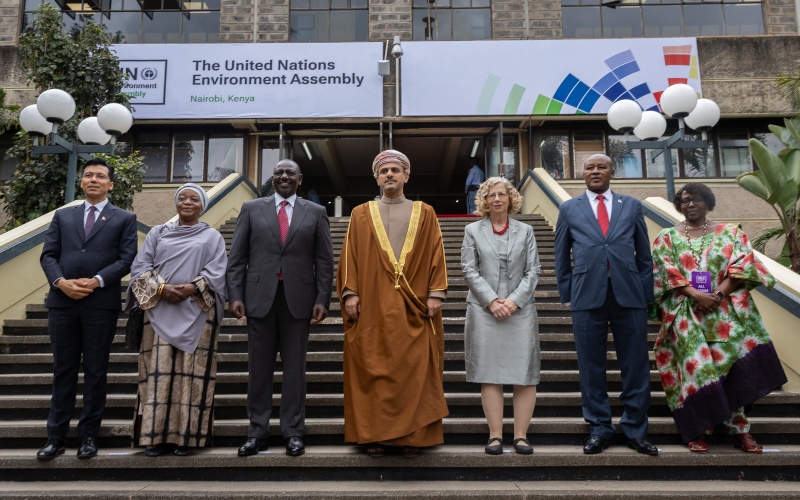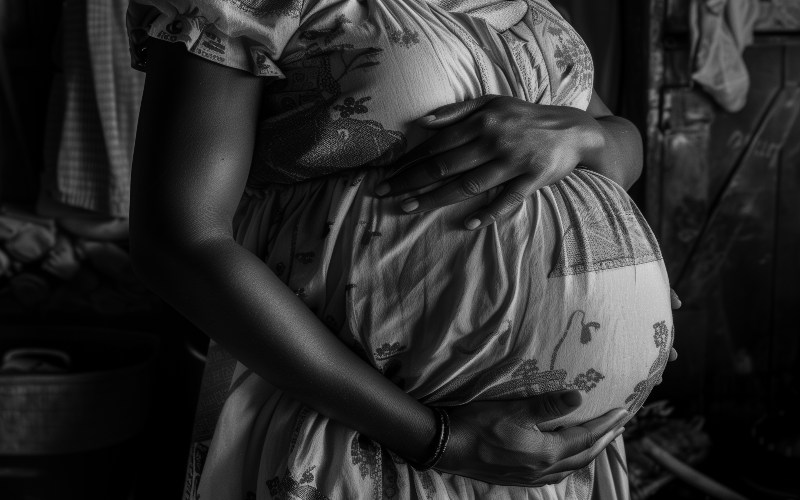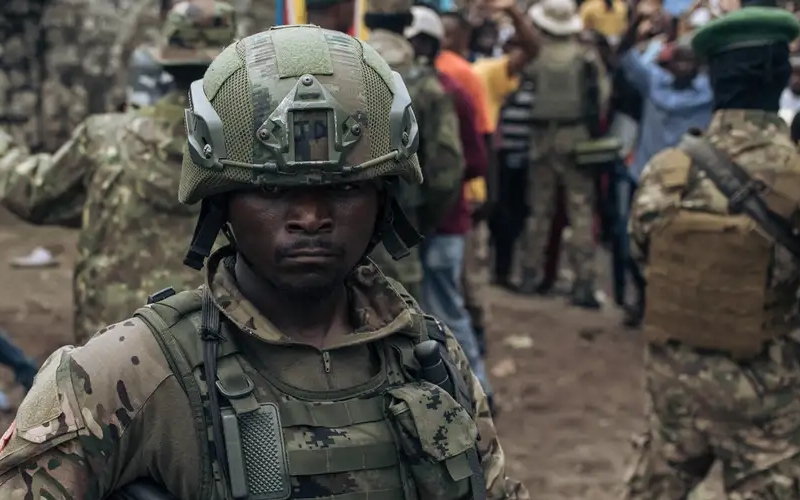State not doing enough to curb rising femicide cases, says human rights coalition
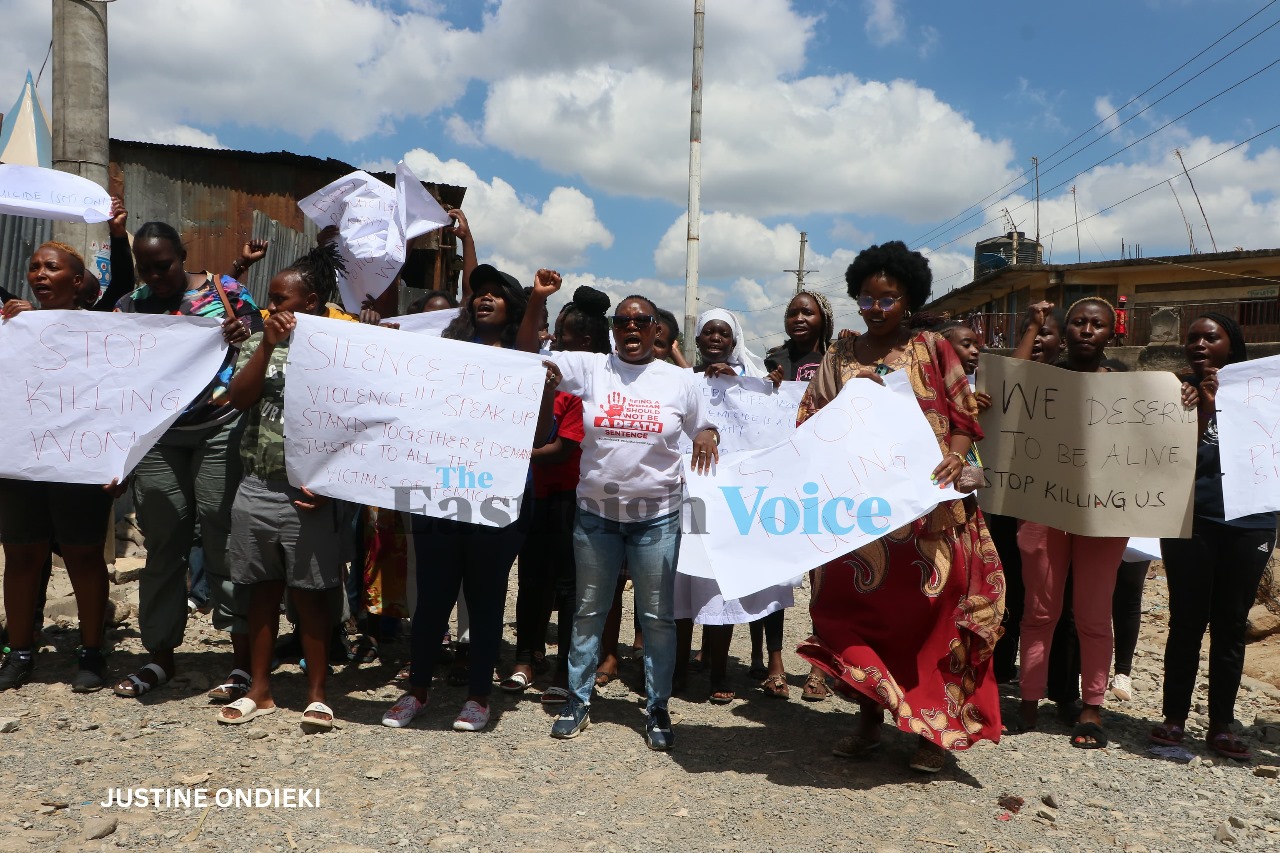
The group noted the lack of consistent case follow-ups, reporting instances where individuals pursuing justice have faced intimidation and threats.
The Coalition for Grassroots Human Rights Defenders Kenya (CGHRDK) has raised alarm over the government's perceived lack of urgency in addressing the increasing cases of femicide across the country.
While addressing the media on Sunday, the lobby voiced concerns that existing laws and penal codes are inadequate, as the cases continue to rise despite legal provisions meant to protect women.
More To Read
- Githunguri MP Gathoni Wamuchomba protests suspension, backs femicide victims
- Witness tells court he was paid Sh9,000 to transport Willis Ayieko's alleged killers
- Congolese man sentenced to 40 years in prison for murdering his Kenyan lawyer girlfriend
- "Withhold bail for my daughter's killer", Mother's emotional plea to court
- Ruto extends mandate of team tackling GBV, femicide by 60 days
- Body of 17-year-old refugee girl killed after refusing forced marriage to be exhumed Friday for autopsy in murder case
The group noted the lack of consistent case follow-ups, reporting instances where individuals pursuing justice have faced intimidation and threats.
The coalition urged President William Ruto to take a decisive stand by declaring femicide a national disaster, calling for coordinated action from both state and non-state actors. They warned that treating femicide with disregard undermines fundamental human rights, including the right to life, dignity, and protection from degrading treatment.
“There is an urgent need for the President to declare femicide a national disaster and for all stakeholders to link femicide to the right to life and dignity. It is therefore not enough to have gender ministry representatives when no tangible actions are being taken to address the normalisation of femicide in Kenya,” they said.
The coalition highlighted that many femicide cases disproportionately impact young women, particularly university students, who are often harmed by intimate partners.
“This raises questions about the safety of higher learning institutions for young women,” they said, urging universities to establish stronger measures to prevent gender-based violence on their campuses.
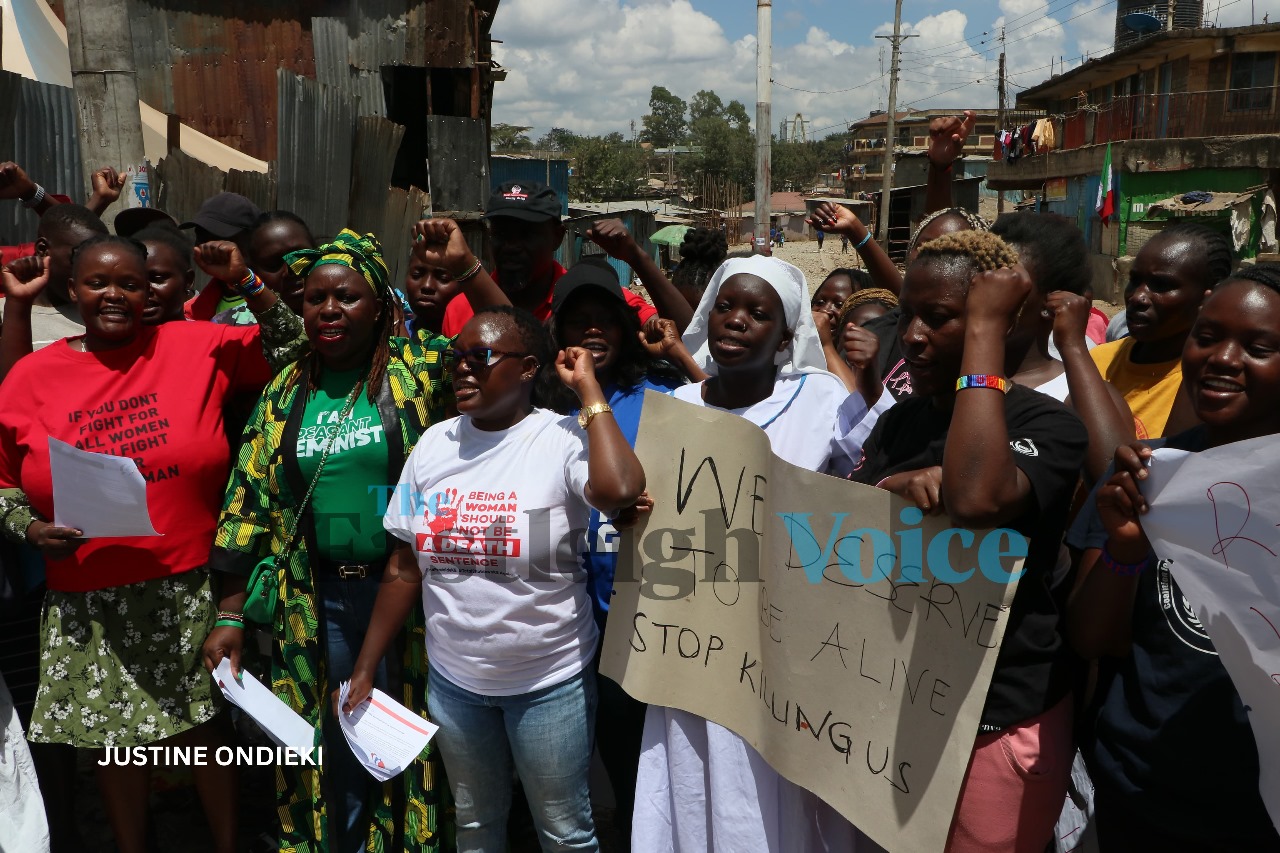 Members of the Coalition for Grassroots Human Rights Defenders Kenya protest over the rising cases of femicide in Mathare, Nairobi on November 3, 2024. (Photo: Justine Ondieki)
Members of the Coalition for Grassroots Human Rights Defenders Kenya protest over the rising cases of femicide in Mathare, Nairobi on November 3, 2024. (Photo: Justine Ondieki)
They appealed to institutions to implement early warning systems and to hold perpetrators accountable to curb these crimes. They also called for a judicial review of femicide-related cases to ensure justice is served, emphasising that institutions should take decisive action to address the threat.
Legal reforms
Additionally, the group called for immediate and targeted legal reforms to recognise femicide as a distinct crime.
"Femicide cases should start being treated as stand-alone crimes and the penal Code should be amended to reflect this,” the lobby said.
The group cited historical cases, including the killing of Muthoni Nyanjiru outside Central Police Station during the colonial era and the murder of feminist activist Elizabeth Ekaru, who was killed by an assailant recently sentenced to 30 years in prison.
The group argued that such outcomes often only come after intense public pressure, which raises questions about the justice system’s responsiveness to gender-based violence.
“Cases of Femicide can be traced to precolonial days when Muthoni Nyanjiru was killed outside Central Police Station for leading a march to have Harry Thuku released. Too often, it is feminists and activists who must rally for justice to be served,” the group decried.
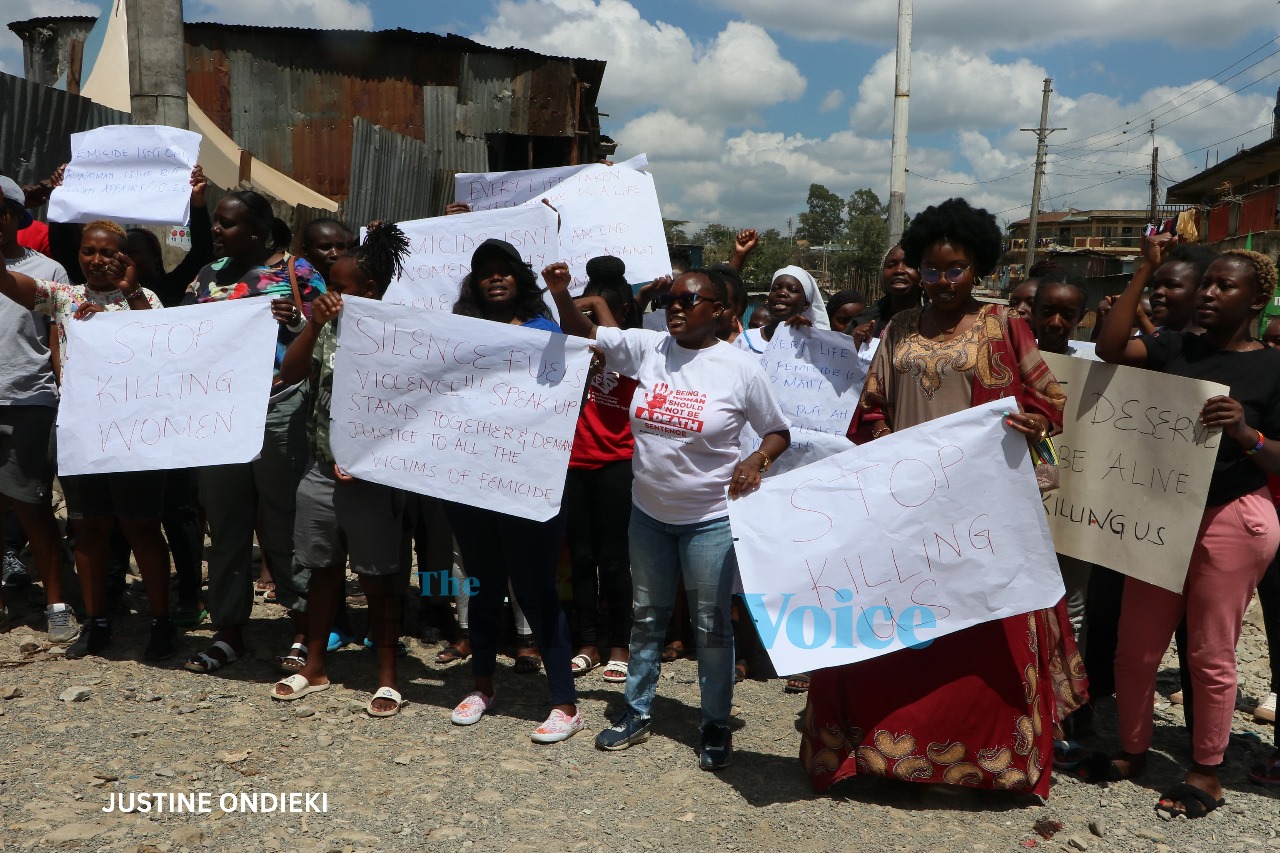 Members of the Coalition for Grassroots Human Rights Defenders Kenya protest over the rising cases of femicide in Mathare, Nairobi on November 3, 2024. (Photo: Justine Ondieki)
Members of the Coalition for Grassroots Human Rights Defenders Kenya protest over the rising cases of femicide in Mathare, Nairobi on November 3, 2024. (Photo: Justine Ondieki)
“It is sad that feminists and activists had to pile pressure for justice to be served raising questions about whether perpetrators of such crimes can't be jailed without pressure. There are instances where the perpetrators are themselves duty bearers including police and lawmakers making it hard to ensure justice.”
The coalition further criticised the inconsistent reporting of these cases, with some categorised as homicides rather than femicides, which, they argued, dilutes the specific gender-based nature of these crimes.
The issue has gained heightened attention following several recent, high-profile femicides, including the brutal murders of three women in Nairobi’s Eastleigh area.
The bodies of Amina Abdi Rashid Dahir, her daughter (22 years), and her niece (12 years) were discovered on October 21, 2024, in different locations in Machakos, Park Road, and Bahati. The three had gone missing from Eastleigh, Nairobi, and police believe the same perpetrator was responsible for all their deaths.
Amina's body was found with stab wounds in Parklands, while her niece Nuseiba was discovered in Bahati with blood-stained clothes but no visible injuries. Their mother's body was found in Machakos with severe mutilations, including missing wrists and evidence of sexual assault.
Another recent incident involved the strangulation of a young woman in Thika and the discovery of a Mombasa taxi driver’s body in Nakuru.
The coalition noted that these cases, often involving intimate partners, underscore the need for deeper societal and legal reforms to protect women from gender-based violence and ensure their safety in all spaces.
Top Stories Today


